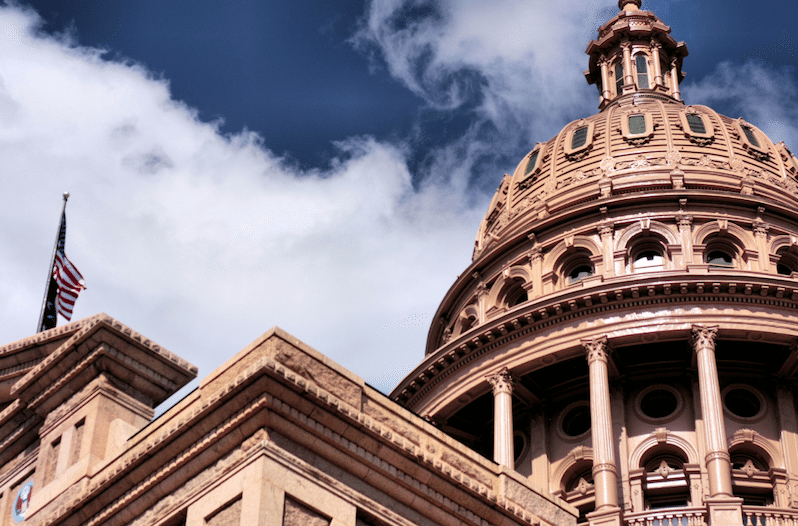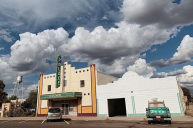[dropcap]T[/dropcap]exas is home to some of the richest musical heritage in not just the country, but the world. We can all agree the state's impressive music lineage merits a world-class Texas State Music Museum. But not everyone agrees where it should be — or who should pay for it.
Recent legislation filed by state senators Kirk Watson (D—Austin) and Kelly Hancock (R—North Richland Hills) seeks to put an official Texas State Music Museum right in the heart of Austin. The facility would form part of a larger "museum district" near the Bob Bullock State History Museum and the Blanton Museum of Art.
Dubbed Senate Bill 1147, the legislation also creates a nonprofit Texas Music Foundation in order to fund the museum. So no state dollars end up in the project. Because heaven forbid the state contribute to cultural education.
So what's the problem? The state already promised the designation of a Texas State Music Museum to the city of Houston, along with $10 million.
A Museum Promised for Houston
Stephen Williams is a founding member of the Museum of American Music History. He says he and the rest of the Texas music museum community want to establish not just a museum, but an entire Texas music heritage tourism industry. Much of that comes from an already impressive collection of memorabilia spread throughout the state's private museums and families.
"Currently, the privately held collections alone would rival the asset base of Library of Congress holdings," Williams tells Wide Open Country. Tammy Fender (daughter of Freddy Fender) represents one of the largest collections in the world. And she vehemently opposes Senate Bill 1147.
"She's representing over 116 music families, music museums, archives and private collectors," Williams says. Fender is in Austin lobbying politicians this week. She's also actively helping with House Bill 2079, a separate piece of legislation aimed at establishing a "Texas Music History Trail." Additionally, Fender identified more than $50 million in federal grant money available to Texas for such purposes. If the politicians in Austin — namely Gov. Abbott — would accept it.
Many prominent music history entities committed their resources to building a world-class museum in Houston. Those include the Freddy Fender Museum, MAMH and Jim O'Chery's Texas Music Library and Research Center.
In fact, the organization got close to buying a building for the proposed museum years ago. Through federal legislation established in 2005, the Texas Department of Transportation was prepared to give $10 million to create the museum. But Hurricane Katrina obliterated the budget not long after.
Then, it reappeared years later. But in 2010, Gov. Rick Perry declined to hand the money over.
So the organization again requested money from Gov. Greg Abbott in January 2016. Instead, Abbott and the legislature introduced this new Senate bill. Which, as previously noted, wouldn't allocate any state funding, though it was approved.
But, according to Williams, it might not have much Texas music heritage, either. According to the Dallas Observer, "40 percent of the available collections are located within 100 miles of Houston because that city had the only available recording studio in Texas."
And don't expect those collections to end up in Austin. All of the private museums which already committed to a Houston museum would have to compete with a "state" museum in Austin for new collections. That's just simply not feasible, nor does it create a complete picture of Texas music history.
Austin Makes Its Case
And yet, Austin presents plenty of viable reasons to house the museum as well. The town's history makes it a place of legend in the global music community. Naming itself the "Live Music Capital of the World" stuck. Tourists already flock to the town, which has a history of promoting Texas' fiercely independent culture.
And, as of now, most of the music industry growth in Texas comes from Austin. Between Austin City Limits, the ACL festival and SXSW, music tourism is at an all-time high. The Texas chapter of The Recording Academy calls Austin home, and so do many musicians forging new careers through the Texas music scene.
Ray Benson testified to the Senate Business and Commerce Committee, and said the museum should be "in the state capital where people come," according to the Houston Chronicle. San Antonio native and 14-time Grammy winner Gilbert Velasquez agreed.
Even some small museums, like Austin's own Texas Music Museum agreed that consolidating Texas' musical heritage in one building made sense. But for Williams' coalition, those reasons just don't cut it.
The Bottom Line
Williams says the new bill basically establishes an "exploratory private foundation." One that seeks "to create an imaginary music museum, somewhere at the Capitol Complex, for artifacts, collections and music history support they don't have."
This issue clearly roots much deeper than simple city rivalries. And while, on paper, Senate Bill 1147 seems like a harmless proposal, Williams makes a compelling case.
"Houston has been qualified as the State's official Texas Museum of Music History and has worked with federal and state agencies to establish a well funded music heritage tourism industry," Williams says. "Plus we have all of the artifacts."
READ MORE: Why the Texas Music Scene Matters
Texas has a history of undervaluing the arts. Not long ago, the legislature slashed incentives for films and video games. And that severely hurts the state's competitive edge in drawing in entertainment business. Dragging out this process could endanger a Texas State Music Museum altogether.
But the location needs to be just right. And sometimes that means not going with the "obvious" choice. You know, like putting the Rock And Roll Hall of Fame in Cleveland. As the legislative session moves forward, we'll pay close attention the developments involving the proposed museum.




